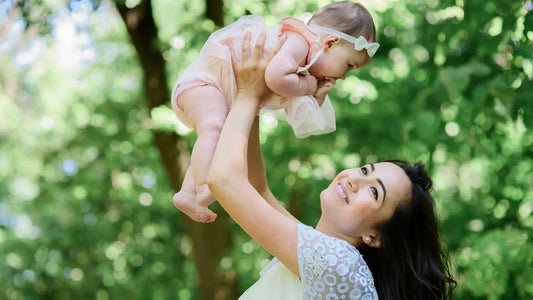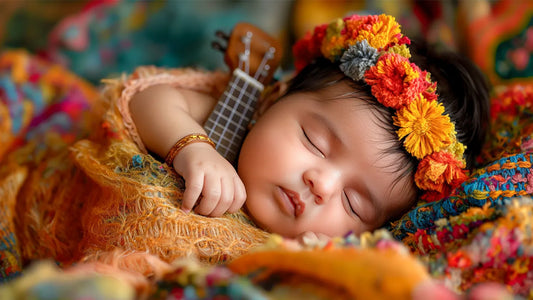Baby hair loss: when to worry and when it’s normal
Are you among those parents who are concerned about their baby’s hair loss? No need to worry; today, we will learn everything about baby hair loss and when to be concerned.
Introduction
Hair loss in babies is a common concern and happens as a normal part of the early development of the child. Sometimes it can be due to other health problems, and to avoid confusion between the two, you need to have proper knowledge about baby hair loss and associated causes for issues.
Through this blog, I’ll provide you with complete information about baby hair loss by experts.
Understanding all about normal baby hair loss.
Hair loss in infants is considered normal. It is the process of shedding birth hair and the growth of new, healthier hair. In scientific terms, it is called neonatal alopecia or telogen effluvium, and it is caused by hormonal shifts that occur after birth. It usually occurs in the first six months of a baby’s life. After all the hair has shredded, new hair starts to grow from the sixth month, growing fully by the end of the 12th month.
But if the hair does not start to grow back by the 12th month, then you should consult a doctor.
Signs of healthy hair regrowth.
After the sixth month, your baby’s hair may start growing healthier. You may notice a soft hairline forming initially, which later gets full hair growth on the head. It is also normal for the hair to change textures from thin to thick or color in the first year as they grow their real hair. And as they continue to grow, their hair also grows thicker and fuller than before.
When should you be concerned about hair loss?
Hair loss in infants is a common happening and a part of the growth process, but there are many situations in which you should be concerned. If you can relate to any concern, do not wait to consult a pediatrician.
If the baby is losing hair so fast that there are visible patches and the lost hair is not growing back, it may be a sign of some conditions, like alopecia areata or other fungal infections.
Many scalp infections, like ringworm and other conditions, cause redness, irritation, or inflammation on the scalp skin. If any of this is happening with your baby, immediately get a proper consultation from your pediatrician.
If your baby’s hair growth is uneven or the hair is not growing at all, it may be a cause of any underlying issue, and it should not go unnoticed.
If the baby’s hair continues to shed even after a year, then it should be thoroughly checked and consulted with a specialist pediatrician. As it can be because of many conditions like alopecia areata, etc.
If there is a family history of conditions like alopecia areata or other genetic disorders affecting hair growth, it may be worth monitoring your baby’s hair loss more closely. These conditions can be passed on to the baby, causing premature hair loss.
Hair loss can also happen if the baby is not provided with enough nutrition for their age. In such situations, parents are advised to get proper consultation from the child nutritionist and maintain a balanced diet for their little ones.

Tips to care for baby during hair loss
- Regularly massage baby’s scalp with the best baby hair oil.
- Do not use harmful products
- Avoid keeping the baby lying down too much.
- Use appropriate bathing products.
- Use the best kids' shampoo, hair lotions, and other bathing products.
- Consult a doctor if you notice symptoms like inflammation, irritation, excessive hairfalling, etc.
Check out Organic Dew for the best baby care products. Organic Dew offers a wide range of organic baby products that keep your baby safe and healthy. Order now for the best deals!
Conclusion
It is normal for your infant to go through hair loss as a part of the growth process, which typically starts when your baby reaches six months of age and lasts 12 months. You should not worry about it. However, if the problem does not go away and the child develops symptoms of redness, irritation, and inflammation over the scalp, it should not be taken lightly. It must be properly consulted with a doctor. You should also make sure to use the best baby shampoos, lotions, and oils for keeping your baby clean and massaging their scalp regularly.
Shop for the Best Baby Care Products
FAQs
Q1. When should I worry about baby hair loss?
Ans: Most newborns and very young infants will lose hair after birth, but if it continues even after 1 year, it should be consulted with a doctor.
Q2: Can vitamin D deficiency cause hair loss?
Ans: If your vitamin D levels are low, hair loss can result merely due to an insufficient supply of these cells.
Q3: What is alopecia areata?
Ans: Alopecia areata is a common autoimmune disease that causes hair loss in children and adults.
Q4: What causes alopecia in a child?
Ans: The most common causes are non-medical (pulling hair too tight, brushing roughly, newborn hair loss) or caused by tinea capitis (a fungal) and alopecia areata (the immune system attacking hair follicles).
Q5: Can children recover from alopecia?
Ans: Almost always the hair grows back, but it can be prevented if diagnosed at an earlier stage.




